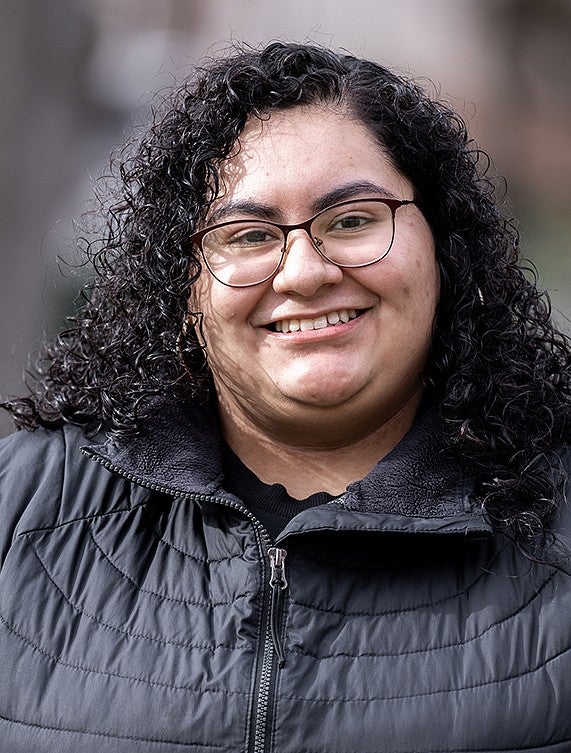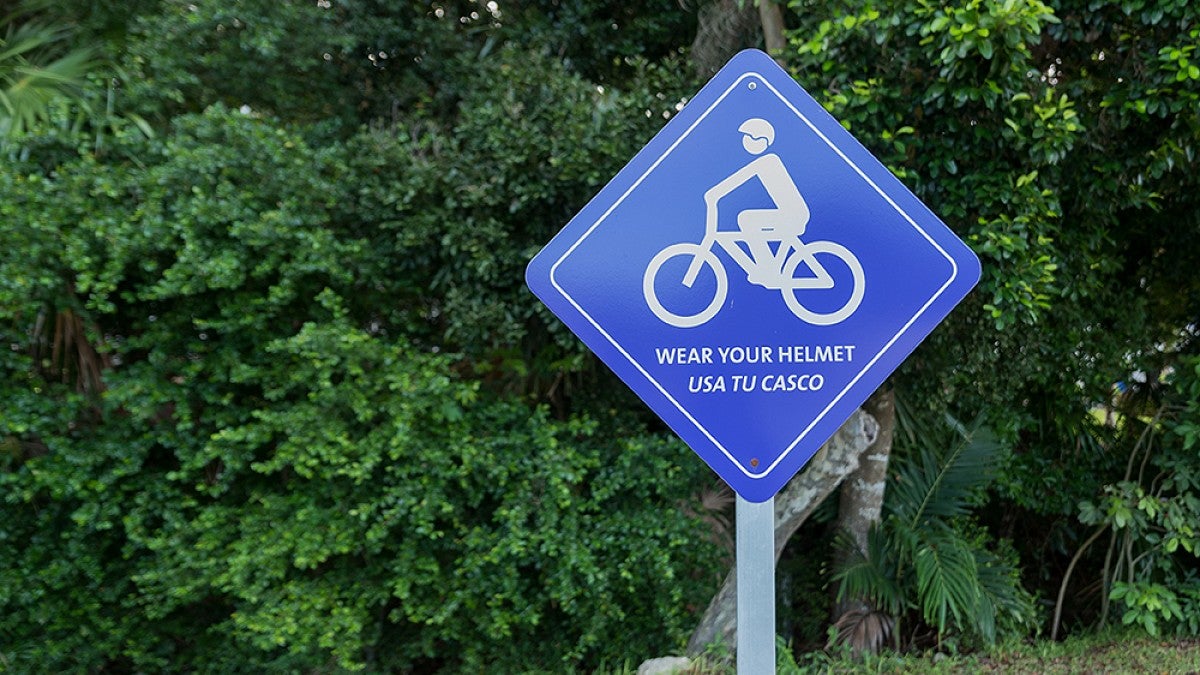UO senior Azusena Rosales Suares always did well in math. Her secret: find the patterns. Plus, from an early age math offered an escape into a world with its own universal language.
But it wasn’t until she was well into her studies at the University of Oregon that she discovered how her knack for math also could also help with the language of words, setting her on a path to help fellow Spanish speakers more easily find their way around town.

Growing up in Salem, Suares attended bilingual schools. She didn’t speak much English in her classes until the sixth grade, when she started taking English-only courses. Because of the abrupt transition, she started falling behind in her other subjects — but not math.
“I excelled, because I understood the letters and numbers,” the Clark Honors College student said. “It came naturally.”
Suares eventually caught up in all her classes, but math remained her specialty. She helped her four younger brothers with their grade school math homework and continued tutoring her peers throughout high school. At the UO, she tutored high school and college students through the Oregon Young Scholars Program and the TRIO Upward Bound Program.
She majored in math and Spanish, a curriculum of words, numbers and patterns that led Suares to a new academic passion: linguistics. That’s a trifecta of fields that are all part of the UO’s College of Arts and Sciences. For her honors college thesis, she’s conducting original research on bilingual street signs and helping Devin Grammon, an assistant professor of Spanish sociolinguistics, with an ongoing project that’s helping the community.
Since 2019, Grammon has been exploring how improving signs could help make downtown safer and more welcoming for Spanish speakers. The signs tell people what they can’t do and where they can’t go, as well as signs that welcome them or help them get around town.
Grammon dreamed up the project while riding his bicycle through downtown to the UO campus. He kept noticing how some signs were only written in English, some were bilingual and some of the bilingual signs included Spanish that was less visible, or they were translated in ways that didn’t align with the subtleties of language and culture.
Grammon connected with city officials. A general concern, based on conversations and anecdotes, was that downtown was not particularly welcoming or inviting for Spanish speakers, though they are a rapidly growing population.
“We wanted to change that,” Grammon said. “Public signs are a window on ethnolinguistic vitality, and Spanish signage benefits some of the most vulnerable members of our community. I always want my research to touch on larger issues of social justice and address major problems in our society, not just describe how language is used or some interesting dialect. Language is about people.”
Grammon’s curiosity and drive to help create a more just society became a biennial class that enables undergraduates to participate in research. Their work is leading to tangible changes, with data gathered by students informing city policies and practices.
Suares first became interested in bilingual signs while taking Grammon’s class. That spark of curiosity led to the topic for her thesis. By interviewing community members, she’s exploring how the academic research in this area applies to the experiences, perceptions and behaviors of real people.
“I wanted to know more,” she said. “I found it interesting how some signs are negative for the Spanish speaking community. But what does it mean? How is that affecting them? Do they care, or do they dismiss it? Linguistics is similar to math. You look for patterns and organize them. You try to make greater, more complicated conclusions, and prove them.”
Suares said her goal is learn more about the Spanish-speaking community and predict what they are looking for in downtown signage.
“How can we be more inclusive? Simply by making the same sign in a different way?” she asked “It’s all about helping people understand things and build their confidence.”
Looking back on her undergraduate experience, she said she’s grateful for her scholarships, without which she wouldn’t have been able to attend the UO. Those include being named a McNair Scholar, which provides support for qualified juniors and seniors conducting research and pursuing advanced degrees.
But after she turns that tassel, she’ll miss the freedom of exploring different classes and student organizations.
“Once you graduate, you have to decide what you want to do,” she said. “That’s a pressure right now. That’s the stress of being a senior.”
Suares is applying for graduate school at the UO and hopes to focus on curriculum development for bilingual core classes, specifically math, after she graduates in June.
—By Ed Dorsch, University Communications


